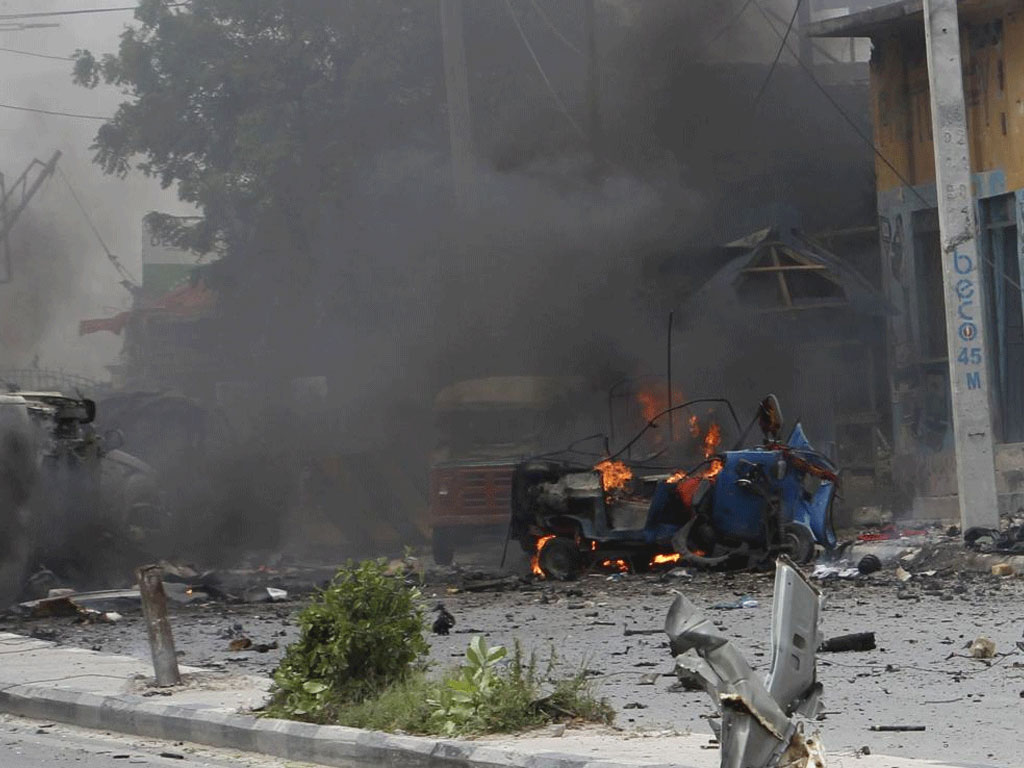Bomb blasts in Balochistan

Terrorists struck twice in Balochistan a week ago. In the northern Pashtun-dominated district of Pishin, an improvised explosive device (IED) hidden inside a motorcycle went off outside the office of Naib Tehsildar as he arrived in Levies vehicle. The other blast, also targeted at a security forces vehicle, took place in the province's southern Panjgur district. According to reports, at least 12 people, including security personnel were injured. No one has claimed credit for either of the two attacks. An obvious suspect are Baloch insurgents; they however normally claim responsibility. Some IS elements have also been involved in some previous bloody incidents, but considering that they have been attacking Shias as well as leaders of certain religio-political parties opposed to them, these ones seem to be the deed of a different cast of characters.
It may well be the handiwork of Indian intelligence agency, RAW, and/or elements in its Afghan counterpart, NDS, both of which have been found to be involved in the past several terrorist attacks in this country. There is a living proof of that in the RAW operative, Kulbhushan Jadhav - caught red-handed in March 2016 in Balochistan - who in his confessional statement admitted his assignment was to fuel insurgency in Balochistan, instigate acts of terrorism in that province as well as in Karachi. New Delhi has also made known its hostility to China Pakistan Economic Corridor (CPEC). Aware of the threats to this flagship project of its ambitious One Road One Belt initiative, China is said to have been trying to facilitate reconciliation between the few remaining Bloch insurgents and the government. The bomb blasts seem to be aimed at creating an impression that Pakistan remains racked by violence and hence a risky place for financial investments. It is not without significance that the present incidents happened at a time Saudi Arabia and the UAE have shown keen interest in making investments in Pakistan, including its CPEC projects. In fact, the attacks came on the day the Abu Dhabi Crown Prince, Sheikh Mohammad bin Al Nahyan, was on an official visit in Islamabad. Aside from him formalizing a $6.2 billion support package to help Pakistan tide over its external sector crisis, the two sides resolved to pursue various initiatives for strengthening bilateral economic relationship, including a long-term investment framework agreement.
Whether it is India, some disgruntled people within the Afghan intelligence agency or the Baloch insurgents (who actually are backed by the other two) trying to create instability in this country, our intelligence agencies need to get their act together. It's been almost five years when it was decided to strengthen the National Counter Terrorism Authority (NACTA), where all civil and military agencies were to share information and coordinate actions, yet it remains a sideshow. The previous government neglected to allocate the Authority the required funds, even a proper building to house its operational headquarters. Another hindrance is believed to be turf claims between the civil and military agencies. These issues only benefit those looking for opportunities to cause harm. The problem is unlikely to go away unless all concerned agencies work together in an efficient and effective manner.






















Comments
Comments are closed.